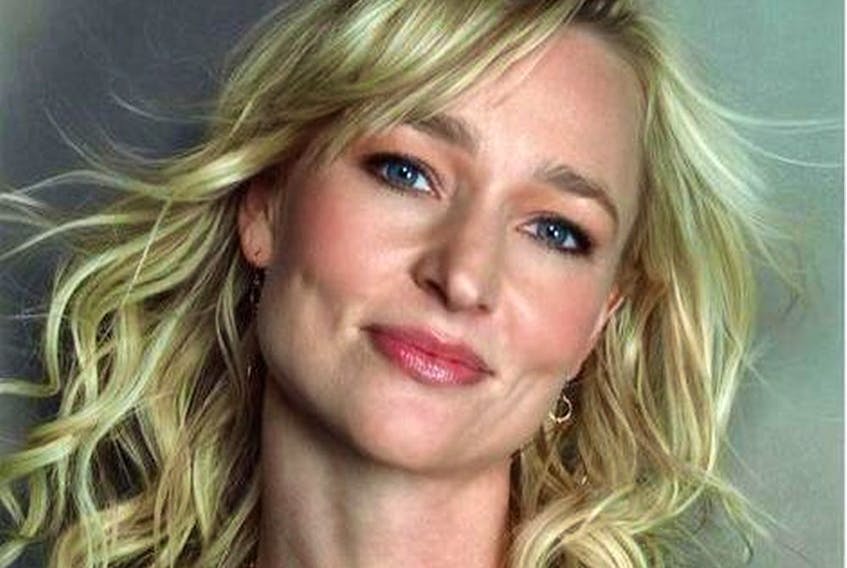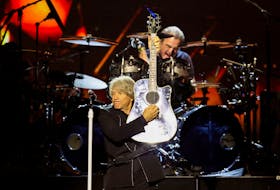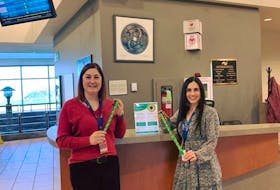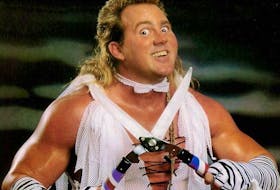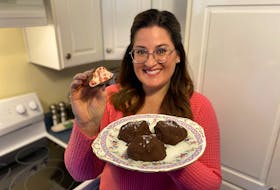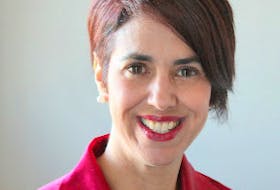When he was 12, Andrew Wreggitt wanted to be a hippie.
In was 1968, so the time was right. He may have been too young to be caught up in the politics of the day but he certainly remembers the peace-and-love vibe in Vancouver, where the Calgary native lived at the time.
“It was Fourth Avenue in Vancouver in Kitsilano and that’s where all the hippies were,” says Wreggitt in an interview from the set of the Calgary-shot CBC drama Fortunate Son. “They sat around on the street and played guitar and had long hair. I remember looking at that and thinking it was the most amazing thing ever. I just really wanted to be a hippie. I thought that was so cool.”
Wreggitt says he never forgot that Vancouver-in-1968 feeling. Now, as showrunner for Fortunate Son, the 55-year-old writer has immersed himself in the tumultuous period. Having penned everything from episodes of the Beachcombers and North of 60 to Corner Gas: The Movie, Wreggitt has been writing for Canadian TV and film for more than 30 years. But this is the first time he has set anything in the 1960s. Last week, Fortunate Son took over a main street in Drumheller during its first days of filming. There were vintage cars and hundreds of extras sporting period-appropriate hairdos and fashions.
“It’s this weird mix of ‘Oh man, this is so awesome’ and ‘Oh, I remember that.’ ‘I used to have a sweater just like that,’ ” Wreggitt says with a laugh.
Which is not to say that Fortunate Son takes a rose-coloured view of the 1960s. A drama with a thriller’s edge, it is set in the fiery antiwar movement and explores the often shady efforts made by the American government to infiltrate it. At the heart of the story is Ruby Howard (played by Kari Matchett), an American fugitive who escapes to Canada with her family. Once she is in the Great White North, she helps draft dodgers and war deserters cross the Canadian border with the aid of her occasionally reluctant family. True Blood’s Stephen Moyer plays CIA agent Vern Lang. Darren Mann plays Travis Hunter, a troubled Vietnam vet turned deserter who becomes entangled with the Howard family, which includes Ruby’s husband (Rick Roberts), twentysomething daughter (Kacey Rohl) and teenage son (Alex Nachi).
So, yes, the music was cool. The clothes were funky. There were lots of hippies. But it was a complicated time and Fortunate Son explores the period in all its juicy contradictions.
“There was a deep desire for change and the feeling of cataclysm at the time,” Wreggitt says. “In 1968, it felt like the world was coming apart. You had political assassinations, the war in Vietnam and young people versus old people and race riots. If felt like the world was being rendered apart. At the same time, there was also the excitement of the ’60s, the idea that we needed this kind of cataclysm to change a world that we don’t like very much. People were positive about change and ideas were proposed that were difficult for the general public to understand.”
For research, Wreggitt looked into America’s so-called COINTELPRO, a shadowy counter-intelligence program used by the FBI to infiltrate domestic political groups such as the antiwar movement. But while these bigger issues are explored, Wreggitt says Fortunate Son is in many ways an intimate story about a troubled family. It’s also very loosely based on the family history of executive producer Tom Cox, whose mother, Mary, was an early inspiration for the show’s protagonist.
Like Ruby, Mary Cox was an American who was heavily involved in the antiwar movement. She also helped draft dodgers and war deserters when she arrived in Victoria, B.C. The broad strokes of her story provided the initial spark for Fortunate Son, although both Cox and Wreggitt stress that the series and characters are fictional. Nevertheless, Wreggitt found himself drawn to various details of the Cox household when constructing the story arc for Fortunate Son.
“It’s funny, story comes out of the smallest things sometimes,” Wreggitt says. “I would say ‘What was your kitchen like? What went on?’ Then (Cox) started describing people coming and going. There was a Gestetner machine, if you remember what that is, and it was cranking out leaflets. There was always a pot of something cooking because there was always 10 or 15 working on something. It’s like election central and that’s your kitchen.”
Cox is a veteran producer whose Calgary-based Seven24 Films is also behind Heartland and Wynonna Earp. He says it was a conversation that he had with Jessalyn Dennis, who develops scripted television for Seven24, about his mother that led to the three-year development of the series.
“It has evolved substantially from there,” Cox says. “I can, at this point, just say it provided a seed for discussions that led to a concept that led to the series.”
Co-produced with Vancouver-based Lark Productions, the eight-episode season will begin airing in January of 2020 on CBC with NBC Universal handling international distribution at a later date. Cameras are expected to roll until the end of September, with Drumheller, Tsuu T’ina reserve, Calgary and High River subbing in for various regions of British Columbia and the U.S.
While the production is staying faithful to 1968 in terms of fashion, politics, cars and music, Cox says the themes explored in Fortunate Son should resonate with modern audiences.
“In the U.S., it was a time where there were greater divisions than any time since the Civil War,” he says. “And I think we’re seeing those same divisions, those same frictions today in ways that we haven’t seen since 1968. So I think it’s a very relevant story today with a lot of common themes. The sense of social activism, the sense of needing to stand up, the sense that the world is heading in the wrong direction; these are things that young people are grappling with today much as they were then. I think we’re seeing real fear, not in just the U.S., but Canada, France, Italy, Spain. The world is having to come to grips with the fact that we haven’t really evolved as much as we had thought or hoped. Those cracks are very evident again in ways we haven’t seen since 1968.”
Copyright Postmedia Network Inc., 2019

